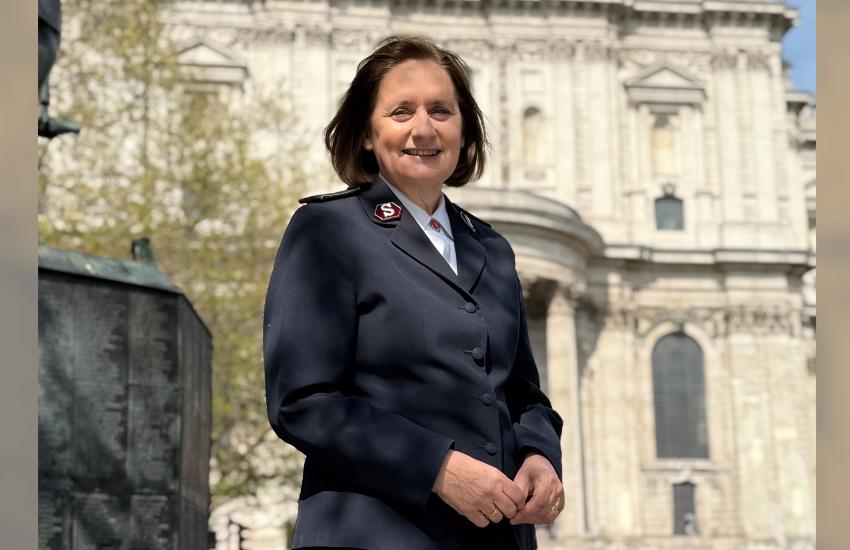As the Lausanne 2004 Forum for World Evangelisation begins in Thailand, The Salvation Army's focus groups – which have welcomed input via the Internet from Salvationists around the world – have made submissions on most of the topics identified as roadblocks to evangelism.
In their submissions the groups give a consistent message: 'Relationships are fundamental to the task of evangelisation.'
The group statement on evangelisation of children, for instance, says: 'Evangelisation of children is all about engaging with children, and building relationships is at the heart of the matter.'
This is echoed in many of the other submissions, including one that says: 'We seek to re-centre the Great Commission in the Great Commandment. "Church" will decreasingly mean a place one attends and will increasingly mean a community to which one belongs, which shares a common mission and a common spiritual practice, rooted in a common experience of what is going on in the community.'
When referring to the kinds of leaders the Church needs, the group calls for 'people willing to develop deep and costly relationships with team members'.
There's even a relational emphasis in the call to prayer. 'Prayer,' it says, 'can be defined as a right link with God ... By developing openings for prayer alongside our evangelism we can connect people to God in a more personal way.'
Some of the conclusions emphasise the importance of maintaining well-tried methods. The group that looked at ways of reaching Jews speaks about 'showing from Scripture that the Jesus of the Gospels is the Messiah of the Hebrew Scriptures'. Generally, however, the groups question the value of many traditional forms of evangelism. Relying on past techniques such as open-air meetings and campaigns, says one group, 'far from promoting the Christian faith can actually inhibit evangelism'.
There are calls for fresh and imaginative approaches to evangelisation. These include:
- going to children rather than expecting them to come to us
- joyful worship with the word explained relevantly
- regarding Internet cafes and clubs as valuable outreach opportunities, imaginatively exploring virtual worship, communion and fellowship opportunities
- empowering corps for effective action by specifying results required rather than specific methods.
There is an unquestioned agreement that evangelism extends to social care, participation in community, stewardship of the earth's limited resources, advocacy and working to establish justice. Here too the emphasis is on relationships.
The opportunities for evangelism in the workplace get special mention, including involvement in the influential professions of health care administration and health care policy-making.
There are questions and suggestions about supportive methods and resources. The statement on funding asks, 'Is the link between funding support and evangelical effectiveness God-inspired or a result of the organisational systems of the Church? It might be asked whether the provision of, and dependence on, external funding really promotes evangelisation – or might possibly hinder it!'
In considering education for evangelism, the group highlights the importance of teaching and training every believer in the task of evangelism. This is not, it says, an optional extra for the gifted or for the paid clergy. It draws attention to both formal and non-formal learning, saying: 'All Christians, including Salvationists, must be open to what the Spirit is teaching in the world today.'
When there is a call for self-examination within the Church the theme of relationships emerges again: 'As long as the Church all over the world operates as hurting and unharmed, as privileged and underprivileged, as oppressed and oppressor, as "us and them", so long will we continue to blight the Body of Christ.'
While recognising the Army to be an action-oriented denomination, several groups call for a greater allocation of time to reflection and prayer. The authentic lives of believers, they say, speak louder than any words. Our own spirituality is the beginning of relationships. Renewal and development of the spiritual life is the bedrock of evangelism.
The full text of the submissions, together with a review article, can be accessed on the International Headquarters web site: www.salvationarmy.org
Convenors of the Lausanne issue groups have expressed appreciation for The Salvation Army's efforts. One commented, 'How encouraging. I am so grateful for this. I did not know that The Salvation Army had chosen this route. It is a wonderful way to contribute to the whole Lausanne process.'
Salvation Army delegates to the forum, under the leadership of Colonel Earl Robinson, Secretary for Spiritual Life Development and International External Relations, will participate in Lausanne Issue Groups. Reports from these groups will be posted on the forum web site: http://www.gospelcom.net/lcwe/2004/dailyupdate.shtml
Salvation Army focus groups will review these when the final Lausanne Forum 2004 is published.
Input to the process is still welcomed. Email: IHQ-CFWE@salvationarmy.org

(Logo for the Forum for World Evangelisation)
Commissioner for World Evangelisation




